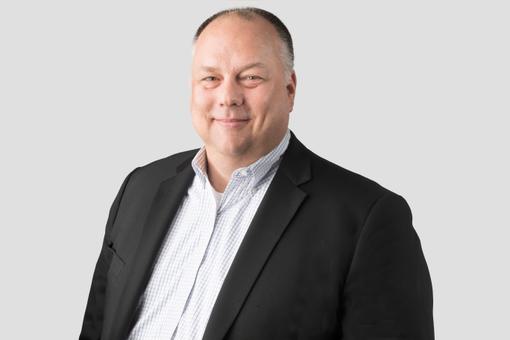Our COVID-19 blog series distills insights collected from interviews on Witt O’Brien’s podcast series entitled PandemicBuzz. We are dedicated to sharing knowledge across crisis management, business continuity and crisis communications practitioners. Our intent is simple – to connect on a personal level during this unprecedented time and hasten a return to normalcy. On this featured episode our host, Devin Sirmenis, Managing Director, Corporate Resilience talks with Bob Sibik, Senior Vice President & Co-Founder of Fusion Risk Management.
Two attributes that have distinguished companies as more successful
Companies that entered the pandemic with a bias towards frequent communications to stakeholders, shareholders and employees started at a more mature place fostering trust and establishing support networks across their constituents during these pandemic times. Sustaining and/or establishing these lines of communications fosters trust in how the company is moving forward with items like site readiness and workforce planning, and an understanding from staff and third parties on the planning efforts for an eventual safe and organized return to work.
In addition, these companies have also established a culture that values working and playing together. Encouraging connections and outlets across these work/life thresholds, has better enabled virtual social activities that promote a positive culture and ease the creation of support groups for employees who aren’t accustomed to working remotely.
Site readiness and de-densification
While many states are considering lifting their shelter-in-place orders, significant changes must be made to the workplace before companies can welcome back employees. Companies are obligated to ensure their employees are coming back to a safe, healthy environment and protective equipment should be installed when physical distancing isn’t easily achieved. In the past, densification was the trend to further enable collaboration and working together in the workplace. Given the social distancing rule, this densification approach will now have to be reversed.
Working from home and capacity planning
This pandemic is seen broadly as a crisis as it exceeds many of the assumptions when doing traditional business continuity planning. SARS, H1N1 and MERS didn’t prepare us well because continuity plans associated with these disruptive events were not maintained over the years. Unlike these previous crises, COVID-19 will create a new norm for the modern business world.
One of the aspects of the new norm is that many people will continue to work from home even after the pandemic is over. Because of this, companies must provide more robust technology to enable closer, consistent communication and interaction. In addition, new productivity metrics should be implemented to measure employee efficiency.
Companies will also have to reevaluate how many employees are required at their offices, what the new need is for space, and how to allow staff to safely operate in an office space. Capacity planning will become one of the biggest challenges for companies moving forward.
The importance of delivering the outcome to your clients
Instead of wanting to “recover the process”, companies should focus on the outcome of the process. Organizations must concentrate on delivering the outcome to both internal and external clients and find new ways to enrich the client experience. Your workforce should not only be trained on the process and how to reconstitute that process from a different location, but also possess the knowledge regarding why the outcome matters, which enables them to be more creative while achieving that outcome.
Consequence-oriented planning
So how can we become more prepared for an event like this in the future? First, companies should contemplate what it means to be prepared. They should shift their focus from not only planning to become more resilient throughout their organization, but also the ecosystem they operate within.
Since this crisis demands much more integration with external parties, companies must have a better understanding of their ecosystem and know how to use data to create immediate actions when something unexpected happens. With that being said, consequence-oriented plans may replace scenario-based plans in the future. Consequence-oriented plans are not highly prescriptive and focus on establishing guidelines for adaptive leadership and decision-making. Given the complexities of crises like this pandemic, planning will become focused on the strategic ‘what to do’ versus ‘how’ to do it.
Support the human spirit
Over the years, one of the forgotten practices for many leaders is the importance of caring for the human spirit. This pandemic has brought to light that management should provide more than just overall direction to its staff. Leaders must offer employees emotional support and inspiration as well. Management is not simply about imparting knowledge on how to get the work done but about showing your team “we can get it done together”.
Contact us
We look forward to the opportunity to guide our clients. Please email covidhelp@wittobriens.com for information on how Witt O’Brien’s can help you further your efforts and achieve your resiliency goals.
Please listen to all our PandemicBuzz episodes on one of your favorite platforms:
***************************

Devin Sirmenis, Managing Director, Corporate Resilience
Devin Sirmenis is a risk and crisis specialist focused on corporate resilience and has served clients for 20 years as a trusted advisor. Devin works with executive leadership at Fortune 500 firms to assess and develop their crisis management programs, train crisis leaders, and stress test the ability to manage an enterprise threatening crisis through simulations.
Prior to joining Witt O'Brien's he led consultant programs at Deloitte, Booz Allen Hamilton and Perot Systems Government Services. Devin pairs his years of client experience with continuing education and has completed Harvard Kennedy School's Crisis Leadership Program and holds a Change Management Advanced Practitioner certification from Georgetown University McDonough School of Business.